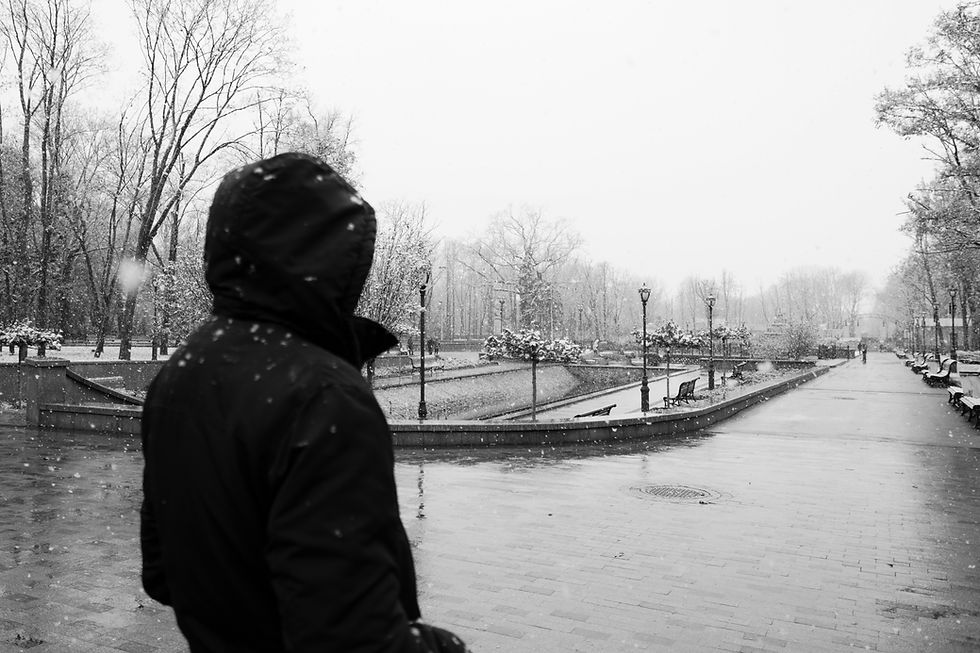Your Trauma Is Valid, Even If It Doesn’t Look Like Someone Else’s
- April Goff

- Aug 7, 2025
- 3 min read
Updated: Aug 7, 2025
Have you ever felt like your pain doesn’t “count”? Like no matter how much you’re hurting, there’s a voice in your head saying, “Other people had it worse. You’re just being dramatic”? Many survivors struggle with this quiet, constant doubt. This is often called trauma imposter syndrome. This is the feeling that your experiences aren’t valid enough to explain the way you feel.
It’s a painful space to live in because it leaves you stuck between two truths. You carry the weight of memories that hurt, being laughed at, abandoned, or dismissed, but the moment you try to acknowledge it, you convince yourself it wasn’t “real” trauma. And because you keep minimizing what happened to you, healing feels out of reach.
We are taught from a young age to compare our pain to others’. And it's a trap. Maybe someone told you to be grateful because someone else had it worse, or maybe you just picked up the message that suffering only “counts” if it’s obvious or dramatic. When you live in comparison, you will always find someone whose story looks more extreme, and you will always shrink your own experience in response.
The truth is that trauma isn’t a competition. Your nervous system doesn’t care if someone else’s life looks harder on paper. It doesn’t measure your worthiness to heal against the visibility of your scars. It only knows that you were hurt, afraid, or unsafe and that those moments left a mark. Constantly comparing your pain doesn’t make you stronger; it just adds guilt to wounds that were already deep.
Invisible Trauma Leaves Real Scars
Not all trauma is loud or obvious. Some of it happens in ways no one else sees, yet it still rewires the way you move through the world. Invisible trauma might look like:
Parents who mocked or belittled you in front of others.
Friends who gossiped about you behind your back or suddenly abandoned you.
Living in a home where emotional support simply didn’t exist.
Constantly feeling excluded, humiliated, or the butt of the joke.
Never knowing when love or approval might be taken away.
These experiences might not leave physical marks, but they teach your body and mind painful lessons: that trust isn’t safe, that people will eventually leave, and that you need to always be on guard. Over time, this shapes how you experience the world, often creating anxiety, hypervigilance, or deep self-doubt. That is trauma, even if no one else recognizes it.
It’s incredibly common to hesitate before calling your experiences “abuse” or “trauma.” You might feel like you’re being dramatic or attention-seeking, or like you’ll be judged for exaggerating. That fear often comes from a few familiar places:
Years of invalidation. If your feelings were dismissed or mocked growing up, you learned to doubt them.
Cultural bias toward visible pain. People recognize broken bones, not broken trust.
Internalized shame. You’ve been taught to believe your suffering is a sign of weakness.
This self-doubt isn’t proof that your trauma isn’t real. It’s actually part of the wound itself. Learning to trust your own pain is one of the first steps toward healing.
Healing doesn’t begin with anyone else’s permission. It starts with your own acknowledgment that what happened was wrong and that it left an impact on you. This isn’t self-pity. It’s honesty. (Also, I think a little bit of self-pity is okay and allowed! I just hope you don't get stuck in it.) Denying what happened doesn’t make it go away, it just keeps the hurt frozen inside you.
If you struggle with self-validation, try this simple exercise:
Write it down. Describe one memory or pattern that still lingers in your mind.
Name the impact. Be honest about how it made you feel whether that was scared, small, unsafe, or unworthy.
Offer yourself validation. Say, “This pain is real, and it matters. I didn’t deserve it.”
This practice can help you step out of the cycle of guilt and give yourself the compassion you’ve always needed.
You do not need a diagnosis, a physical scar, or a witness to start healing. Your trauma is not less real just because it’s quiet or invisible. Healing isn’t about proving your pain to anyone else. It’s about caring for yourself in the aftermath of what happened.
You are allowed to grieve the things you went through. You are allowed to admit that life hasn’t been fair. And you are allowed to heal from things no one else ever saw.
Your trauma is valid. Your pain is real. And you are worthy of healing, exactly as you are.
Disclaimer: This page is for informational purposes only and is not a substitute for professional medical or mental health advice, diagnosis, or treatment. Please avoid any activities you feel may be harmful to you.If you are concerned about your health or well-being, please reach out to a qualified professional. Read my full disclaimer.



My love care abused evil